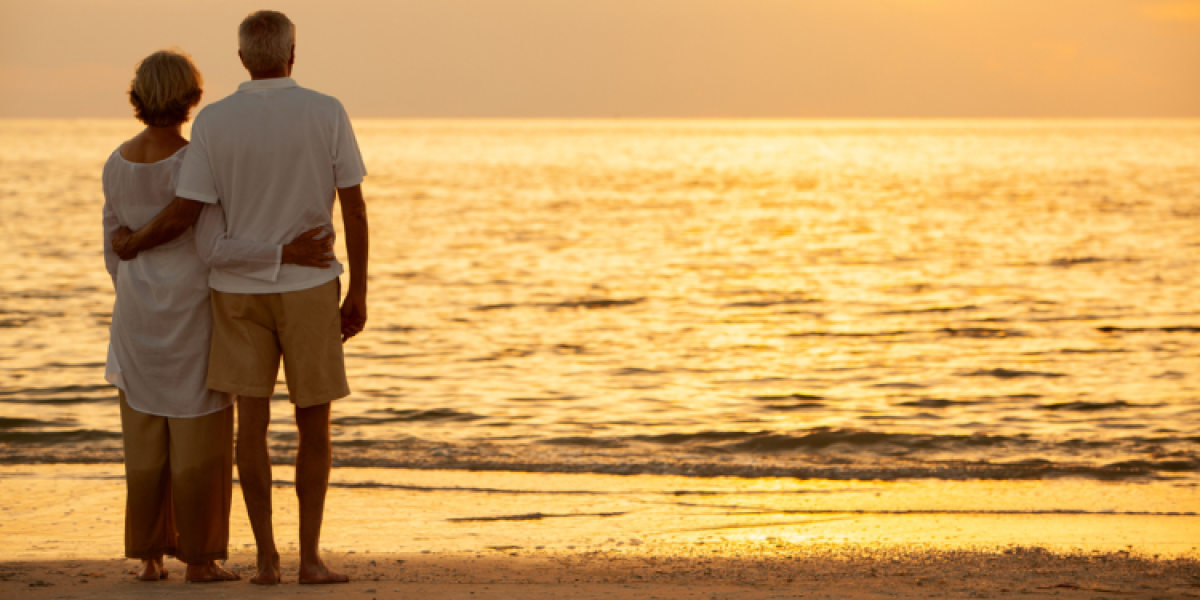
The global health crisis had a considerable impact on international travel and relocation, especially regarding overseas retirement plans. But with the gradual reopening of borders around the world, people are rethinking their overseas retirement plans with new priorities.
Frank, a French national who is looking to relocate to Mauritius, is married to a Mauritian and has retired since six months. One of his main concerns is transferring his French retirement pension to Mauritius, as we can deduce from his post on the Expat.com Forum. But Frank isn't the only one! Jean-Louis, another French national who is also married to a Mauritian, is also wondering about the next steps. "How much does it cost for a couple to live comfortably in Mauritius and what are the requirements?".
It's worth noting that Mauritius is currently looking to boost its Silver economy through a special program. Foreign retirees who are at least 50 can apply for a retirement permit, valid for ten years and renewable. However, they are required to make a first transfer of at least $ 1,500 to a local bank account and provide proof of transfer of the same amount monthly for ten years. Once they become a resident, they will be able to own property under certain conditions and benefit from certain tax benefits.
Like Frank and Jean-Louis, many are currently rethinking their overseas retirement plans for various reasons. For some, retiring abroad is a way to enjoying the sun and the beach in a peaceful atmosphere overseas. For others, retiring abroad is an excellent way to escape the high cost of living, excessive taxes and social and economic issues, and, since the start of the pandemic, to have access to quality health care according to their needs. It's worth noting that more and more Europeans, including the French, Belgians, the British, Americans and Canadians, are considering overseas retirement abroad due to its various benefits.
Attractive destinations for retirees
Spain and Portugal are currently the most attractive destinations for expat retirees, especially the French and Belgians who love their Mediterranean climate, top-notch infrastructure and quality of life. Patrice, who is Belgian, has already started planning his retirement there. “I'm looking to relocate to Spain with my wife with a monthly pension of € 1,300. But my main issues are the taxes and the other expenses such as car insurance, water, gas, electricity, etc.", he says.
Many Britons have also been retiring in Spain lately, at least until Brexit. In recent months, many have been forced to return to the UK or are still thinking of an alternative due to new conditions brought about by Brexit. Many Britons have even been deported from Spain over the past few weeks. Hense, Portugal seems to be the ideal place both for the British and the French. In fact, there were some 28,000 British residents, including 9,000 retirees in Portugal in 2020, according to official figures. And it's not even a surprise given the number of reasons for relocating to Portugal. Having 3,300 hours of sunshine per year is just one of them.
Portugal also offers a low cost of living compared to many other European countries and tax exemptions for retirees since it has signed double taxation treaties with several European countries. Add to this a special tax regime for non-habitual residents for ten years. So with the recent pension changes, Portugal is becoming an obvious choice for the British.
But Europe isn't the only appealing continent for retired expats. Many have prefered Asia and Latin America. Thailand, Malaysia and Cambodia are among the favourite destinations for expat retirees. But the pandemic has significantly slowed this trend due to the rising number of COVID-19 cases and heavy death tolls in these countries, along with border closures. Thailand, which was looking to reopen its borders to tourists in July, is considering extending its border closures since the South African variant was detected on its territory.
Interest in Latin American countries has been growing for the past months in spite of COVID-19 spikes. Mexico, for example, has never really closed its borders amid the pandemic. So it kept on welcoming foreigners regardless of the purpose of their stay. Mexico has been the favourite destination of American retirees for many years (there are currently more than 125,000 in its main cities and beach resorts), but there are also huge Canadian and French expat communities there. Besides its cultural heritage, low cost of living and pleasant climate, Mexico is an interesting choice regarding healthcare -- it is cheaper compared to North American countries.
Costa Rica, Panama, Belize and the Dominican Republic are other popular choices both for North Americans because of their proximity and for Europeans. And despite its poor ranking in terms of safety, Colombia seems to have a better health system compared to the United States, for example, according to the World Health Organization (WHO) rankings.
The Dominican Republic stands out for its special retirement visa paving the way to permanent residency. To be eligible, you need to earn a pension of at least $ 1,500 per month. Paule, who is originally from Quebec but currently lives in Morocco, is looking to relocate there, more precisely in Las Terrenas. So she's inquiring about the city, its quality of life, the cost of living, etc. "What matters the most to me is whether I'll have a decent life there with my retirement pension", she says.
Expat retirees and their new priorities
In the COVID-19 era, there are even more things to take into account than just picking a neighbourhood close to an expat community and finding a place to live. Today, one of the key things to do probably be to identify places where you would be less at risk and where healthcare is easily available and affordable. The quality and cost of health care are important issues for retired expats who rely on a pension. Also, keep in mind that most hospitals and clinics around the world are saturated, so waiting times can be long. And make sure that your health insurance provides optimal coverage in your host country.
It is recommended that you get the COVID-19 vaccine before travelling. In fact, many countries have introduced the health passport that helps certify that you are fit to travel, and it helps you avoid the mandatory quarantine upon arrival in some countries. Consider having a backup plan in case things do not turn out the way you expected, especially since you will be away from your support network and your loved ones. Between lockdowns and the slow easing of restrictions, and constant borders closures for indefinite periods, there are high chances that you feel homesick.



















